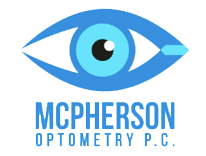3 Things to Know About Amblyopia
Amblyopia is more commonly known as lazy eye in North Syracuse, NY, and it typically starts in childhood. While it may seem like little more than a cosmetic problem to onlookers, it’s the most common cause for loss of vision in childhood. When 3 of every 100 kids have it, it’s important to learn more about the details before dismissing the condition.
1. It Causes the Brain to Change
When one eye works better than the other, the brain naturally starts to rely on the one that works. The more attention one eye gets, the weaker the ‘lazy’ eye becomes. Unfortunately, symptoms aren’t always easy to notice either, because the difference won’t become evident until later on in life. Parents who notice their children struggling with depth perception, constantly squinting, or tilting their head may be dealing with the early stages of amblyopia.
2. There Are Risk Factors
While all kids should have an exam sometime between the ages of 3 and 5, there are some kids who are more at risk for it. Kids who are small or born premature may be more prone to this condition. If your family has a history of eye conditions, including childhood cataracts, this could also increase their chances of developing a lazy eye.
3. Treatments Are Available
The earlier lazy eye is diagnosed, the less time the brain has to spend unlearning what it’s already learned. If there’s a vision deficiency in the child, which is often the case, a doctor may be able to prescribe contacts or glasses to fix it. From there, they may put an eye patch on the stronger eye, which will force the brain to rely on the weaker eye to see. They may also be able to use special eye drops to improve the vision of the weak eye (which may be a great alternative for children who won’t wear the patch.
Find an Eye Doctor in North Syracuse
If you’re looking for an eye doctor in North Syracuse, NY who can help your child keep their vision, the staff at McPherson Optometry P.C. are here to help. Our team can effectively diagnose and treat amblyopia to mitigate its sometimes dangerous impact. Contact us today.




Leave a Reply
Want to join the discussion?Feel free to contribute!